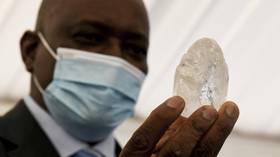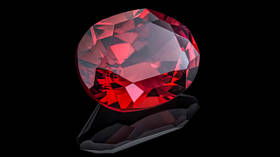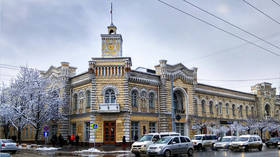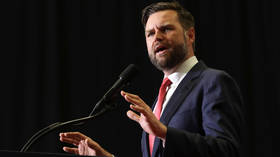Botswana seeks bigger cut from diamond giant

Botswana is pushing for a larger share of diamonds mined by the De Beers consortium, President Mokgweetsi Masisi said on Thursday. Masisi’s government and the company have been trying to negotiate a new deal for five years, and the president now thinks Botswana can make more money cutting and refining its own stones.
Botswana’s diamond industry is completely controlled by Debswana, a joint venture of the government and De Beers. Although both parties own an equal stake in the venture, 75% of Debswana’s diamonds go to De Beers, while a quarter go to the Okavango Diamond Company, a diamond trader owned by the government.
De Beers sources rough diamonds from Botswana, which sell for a lower price than polished diamonds or jewelry. Masisi said that he wants the Okavango Diamond Company to receive a larger cut of these diamonds from the Debswana deal, which the state-owned firm can then refine and sell for a higher price.
“We are at the negotiating table now and because we have learned some new things, we want more for the Botswana government,” he told a briefing, Reuters reported. “We have learned in outcome terms, and we can make much, much more money than we have been making by selling rough.”
“Besides the fact that the diamonds are ours, it doesn’t make sense for us to continue to relegate ourselves to participating in the rough space only,” he continued. “So it’s only logical that we want more and we are going to get more. But through negotiation.”
The current Debswana deal was signed in 2011 and expired in 2020, although it has been extended several times since then. Masisi’s government has been seeking to renegotiate the terms since 2018, however, and threatened to walk away from the agreement last year unless Okavango got more than its 25% share of Debswana’s production.
Masisi has not revealed how large a share he is seeking.
De Beers Co-Chairman Bruce Cleaver met with Masisi in the capital city of Gaborone last week. Speaking to reporters afterwards, he said that he was “very confident that we will come to a deal that is sensible for all parties.”
Botswana is Africa’s number one diamond producer and the second-largest worldwide after Russia. Formed in 1968, Debswana supplies more than two thirds of De Beers’ diamonds, and revenue from these precious stones accounts for more than 30% of Botswana’s GDP.













